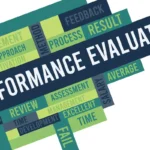Practical Techniques for Improving Your Emotional Intelligence
Emotional intelligence (EI) is a vital skill that influences our relationships, decision-making, and overall well-being. Enhancing your emotional intelligence doesn’t have to be cumbersome. Here are some practical techniques to help you boost your emotional intelligence through straightforward, actionable steps.
- Self-Reflection
Begin by understanding your emotions. Set aside time daily to reflect on your feelings. Ask yourself questions like, “What triggered my emotions today?” or “How did I react?” This introspection fosters self-awareness, a core component of emotional intelligence.
- Practice Mindfulness
Mindfulness involves staying present and fully engaging with your current situation. Techniques like meditation, deep breathing, or mindful walking can help you recognize your emotions without judgment. Regular practice enhances your ability to respond rather than react in emotionally charged situations.
- Manage Stress Effectively
High stress can cloud your emotional intelligence. Identify stressors and develop coping strategies. This may include exercising, journaling, or seeking social support. Reducing stress helps you maintain emotional clarity and improves your responses to others.
- Develop Empathy
Empathy is about understanding others’ feelings. Try to put yourself in someone else’s shoes. When conversing, listen attentively and observe non-verbal cues. This skill is crucial for building rapport and improving interpersonal relationships.
- Enhance Communication Skills
Effective communication is critical to emotional intelligence. Practice active listening by fully concentrating on the speaker rather than preparing your response while they’re talking. Use “I” statements to express your feelings clearly. For instance, say “I feel” instead of “You make me feel” to avoid sounding accusatory.
- Build Strong Relationships
Nurturing solid relationships enhances your emotional intelligence. Engage in social activities, support your friends, and seek feedback on your emotional interactions. Creating a network of trusted individuals provides you with insights into your emotional responses and behaviors.
- Accept Constructive Criticism
Being open to feedback is crucial for growth. When someone provides constructive Criticism, listen actively and refrain from becoming defensive. Instead, use this feedback as a learning opportunity to enhance your emotional response and boost your EI capabilities.
- Set Personal Boundaries
Establishing boundaries protects your emotional well-being. Learn to say no when necessary and understand your limits. Setting boundaries fosters self-respect and enhances your capacity to manage your emotions effectively without feeling overwhelmed by others’ expectations.
- Practice Emotional Regulation
Regulating your emotions is essential for emotional intelligence. Identify strategies to mitigate strong emotional reactions. For example, if you feel anger rising, step away from the situation, take a few breaths, and approach the matter after calming down. This pause can lead to more productive discussions.
- Continuous Learning
Emotional intelligence is not static; it can be developed over time. Read books, attend workshops, or engage in online courses focused on EI. Learning from various resources exposes you to different perspectives and techniques that can enrich your emotional intelligence.
Practical Techniques Summary
| Technique | Description |
|---|---|
| Self-Reflection | Understanding your emotions through daily contemplation. |
| Mindfulness | Staying present and engaging fully with your emotions. |
| Stress Management | Identifying stressors and developing coping strategies. |
| Empathy | Pursuing a deep understanding of others’ feelings. |
| Communication Skills | Practicing active listening and clear expression. |
| Relationship Building | Nurturing supportive connections with others. |
| Accepting Criticism | Being open to feedback and using it for growth. |
| Setting Boundaries | Protecting your emotional well-being through limits. |
| Emotion Regulation | Identifying strategies to manage emotional reactions. |
| Continuous Learning | Engaging with educational resources to enhance EI. |
Improving your emotional intelligence is an ongoing journey. Integrating these practical techniques into your daily life will foster stronger relationships, better decision-making, and an overall enhancement of your emotional well-being. Keep practicing, and you’ll see the benefits unfold in many aspects of your life.
The Impact of Emotional Intelligence on Personal Relationships
Understanding emotional intelligence can transform how we interact with others in our personal lives. It encompasses our ability to recognize, understand, and manage our own emotions while also being aware of the feelings of others. This skill is crucial for building and maintaining healthy relationships, whether with family, friends, or romantic partners.
Having vital emotional intelligence provides a foundation for effective communication. When you can identify your feelings and express them clearly, you create an environment where others feel comfortable sharing their thoughts and emotions. Active listening and responding with empathy can enhance mutual understanding and build trust. For instance, consider a disagreement with a loved one; instead of becoming defensive, acknowledging their feelings can lead to a more constructive discussion.
Critical Aspects of Emotional Intelligence in Relationships:
- Self-Awareness: Recognizing your emotions in various situations enables you to know how your reactions may affect others. Reflecting on your feelings can also help you avoid emotional outbursts.
- Self-Regulation: This involves managing your emotional reactions. Learning to pause before responding can prevent misunderstandings and conflicts.
- Empathy: Understanding the emotional states of those around you enhances your ability to respond appropriately. Empathy fosters a sense of connection and support.
- Social Skills: Building rapport and developing interpersonal skills allow for healthier interactions. Being discreet and open helps in resolving conflicts amicably.
- Motivation: Having a clear sense of purpose in your relationships can encourage you to invest time and energy into nurturing them.
Practical, emotional intelligence can enhance conflict resolution skills. People with high emotional intelligence often approach disagreements with a mindset geared toward finding solutions rather than proving a point. They can empathize with differing perspectives and work collaboratively to resolve. By building on a foundation of trust and respect, the potential for conflict decreases significantly.
Moreover, emotional intelligence plays a vital role in fostering intimacy. Being vulnerable with your partner can deepen your bond. Sharing fears, aspirations, and feelings provides a platform for mutual growth. High emotional intelligence encourages partners to feel safe in expressing their emotions, allowing relationships to flourish. Couples who practice open communication and validation create a space where both partners grow individually and together.
To illustrate the impact of emotional intelligence, consider the following table:
| Emotional Intelligence Skill | Impact on Relationships |
|---|---|
| Self-Awareness | Prevents emotional outbursts, promotes honesty |
| Self-Regulation | Enhances emotional control, encourages calm communication |
| Empathy | Builds emotional connections, facilitates understanding |
| Social Skills | Imparts strong communication, fosters teamwork |
| Motivation | Drives commitment to nurturing relationships |
Furthermore, the impact of emotional intelligence extends beyond romantic relationships. In family dynamics, solid emotional intelligence can foster an environment of open dialogue and support. Parents who exhibit high emotional intelligence can better navigate the emotional landscape of their children’s relationships with peers and help them develop their emotional skills. This nurturing approach can lead to a healthier family environment where everyone feels valued and understood.
Emotional intelligence helps identify and celebrate friends’ successes while also being supportive during challenges. Those with high emotional intelligence are often seen as dependable friends, able to provide constructive feedback and genuine encouragement. This mutuality cultivates deep and lasting friendships that can withstand life’s trials and tribulations.
Emotional intelligence profoundly affects personal relationships. Developing this skill is not merely about enhancing the quality of interactions; it’s about fostering genuine connections and understanding. By consciously working on recognizing emotions, empathizing with others, and improving communication skills, you build a supportive network that enriches your life. Cultivating emotional intelligence can lead to more profound, satisfying relationships with yourself and those around you.
How Emotional Intelligence Enhances Professional Success
In today’s competitive landscape, possessing technical proficiency is merely one part of the equation for success. Emotional intelligence (EI) emerges as a crucial ingredient that significantly enhances professional capabilities. Individuals with a high level of emotional intelligence can navigate workplace dynamics more effectively, fostering better relationships and promoting a harmonious work environment. Let’s explore how emotional intelligence contributes to professional achievements.
Understanding Emotional Intelligence
Emotional intelligence refers to the ability to recognize, understand, and manage our own emotions while also being able to recognize and influence the feelings of others. In the workplace, EI encompasses several vital competencies:
- Self-awareness
- Self-regulation
- Motivation
- Empathy
- Social skills
Enhancing Leadership Skills
Influential leaders not only direct teams but also inspire them. Emotional intelligence empowers leaders to connect with their team on an emotional level. By utilizing empathy, they can recognize the concerns and motivations of their staff, leading to better decision-making and fostering loyalty. A leader who demonstrates high emotional intelligence is often more approachable, making it easier for team members to share their concerns, thereby enhancing overall team morale.
Facilitating Communication
Clear and effective communication is essential for professional success. Individuals with high emotional intelligence can express their thoughts and feelings more effectively and also understand the emotional undertones in others’ messages. This skill can help in reducing misunderstandings and conflicts.
The following table illustrates the differences between high and low emotional intelligence in communication:
| Emotional Intelligence Level | Communication Style |
|---|---|
| High | Clear, empathetic, and intuitive |
| Low | Defensive, vague, and unresponsive |
Boosting Collaboration and Teamwork
Work environments thrive on collaboration. Emotional intelligence fosters a sense of belonging and trust among team members. When individuals recognize and appreciate each other’s strengths, the team’s overall performance is enhanced. They become more inclined to share responsibilities and support each other, achieving common goals more effectively. Teams with emotionally intelligent members are often more resilient and adaptive, enabling them to navigate challenges successfully.
Managing Stress and Conflict
Workplaces can be high-pressure environments with diverse personalities. The ability to manage one’s emotions in stressful situations is a significant aspect of EI. Professionals with high emotional intelligence can maintain their composure, think critically, and respond thoughtfully during conflicts. This ability not only helps resolve disputes amicably but also sets a positive example for colleagues, promoting a culture of problem-solving over blame.
Driving Performance and Motivation
Emotional intelligence correlates with greater motivation, both intrinsically and extrinsically. Individuals with high EI are driven by internal factors such as a desire for personal growth and fulfillment. They also motivate others, pushing teams toward collective success. This kind of motivation is mighty because it resonates on a deeper level, fostering an environment where everyone strives to do their best.
Supporting Career Advancement
Today’s workplaces often prioritize soft skills alongside technical competencies in hiring and promotion decisions. Those who exhibit emotional intelligence are more likely to be seen as fit for leadership positions. They build strong networks, create positive impressions, and maintain relationships that can be advantageous for career progression. This isn’t simply about who you know; instead, it’s about how well you engage with those around you.
In essence, emotional intelligence enriches professional success by enhancing leadership capabilities, facilitating communication, fostering collaboration, and driving performance. As individuals become more aware of their emotional competencies, they position themselves for more significant achievements in their careers. Nurturing emotional intelligence is not just an investment in personal growth; it’s a strategic move towards professional excellence.
Common Myths About Emotional Intelligence Debunked
Emotional intelligence (EI) is often misunderstood, leading to a variety of myths that can cloud its actual value. Understanding these misconceptions can empower individuals and organizations to enhance emotional intelligence effectively. Let’s explore some of the most common myths and the reality behind them.
Myth 1: Emotional Intelligence is the Same as IQ
Many believe that emotional intelligence is merely a reflection of one’s intelligence quotient (IQ). While both are essential, they serve different purposes. IQ typically measures cognitive abilities, such as reasoning and problem-solving skills. In contrast, emotional intelligence pertains to the awareness and management of emotions in oneself and others. Studies show that having a high EI can actually contribute to success in personal and professional relationships, regardless of one’s IQ.
Myth 2: You Can’t Improve Your Emotional Intelligence
Another common myth is the idea that emotional intelligence is static and cannot be developed over time. In reality, emotional intelligence can be nurtured and enhanced through practice and mindfulness. Engaging in reflective practices, seeking feedback, and developing empathy can lead to significant improvements in one’s EI over time.
Myth 3: Emotional Intelligence is Just About Being Nice
While being friendly is an aspect of emotional intelligence, it goes far beyond merely being pleasant or agreeable. Accurate emotional intelligence involves managing one’s feelings, understanding the emotions of others, and responding appropriately in various situations, which sometimes means being assertive or providing constructive Criticism. It’s about balance and finding the right approach in interaction, not just kindness.
Myth 4: Emotionally Intelligent People Don’t Experience Negative Emotions
Some people think that those with high emotional intelligence are free from negative emotions. This is a misinterpretation. Emotionally intelligent individuals recognize and accept their emotions, including anger, sadness, and frustration. Instead of suppressing these feelings, they understand and healthily process them, leading to better emotional regulation and emotional resilience.
Myth 5: Emotional Intelligence is a Female Trait
There’s a stereotype that emotional intelligence is predominantly a feminine trait, which discourages men from embracing their emotional skills. Emotional intelligence is a human trait that all genders can and should develop. Research shows that both men and women can excel in emotional intelligence, and diverse experiences contribute to a richer understanding of emotions and interpersonal relationships.
Myth 6: You Have to Be an Extrovert to Have High Emotional Intelligence
Many assume that only extroverted personalities can exhibit high emotional intelligence. However, introverts can also possess vital emotional intelligence. They often excel in active listening and reflection, critical components of EI. It’s not about being outgoing; it’s about understanding emotions and effectively tuning into the feelings of others, traits that both introverts and extroverts can cultivate.
Myth 7: Emotional Intelligence is Only Relevant in Personal Life
Some believe that emotional intelligence is only vital in personal relationships, which is not valid. In the workplace, for example, emotional intelligence plays a crucial role in teamwork, leadership, and conflict resolution. Organizations benefit significantly when employees and leaders utilize emotional intelligence to foster collaboration and positive work culture.
Myth 8: Once You’re Emotionally Intelligent, You’re Always Emotionally Intelligent
Many people mistakenly think that once they achieve emotional intelligence, they no longer need to work on it. Like any skill, emotional intelligence requires continuous practice and reflection. Life challenges can test one’s EI, making ongoing development crucial for maintaining emotional awareness and resilience.
Myth 9: Emotional Intelligence Equals Over-Sensitivity
Some equate emotional intelligence with being overly sensitive or emotional. However, emotionally intelligent people are aware of emotions and understand them without becoming overwhelmed. This awareness enables them to separate emotions from actions, allowing for more thoughtful responses rather than reactions based on heightened feelings.
Myth 10: You Either Have Emotional Intelligence, or You Don’t
This notion simplifies a complex construct. Emotional intelligence exists on a spectrum, meaning individuals can have varying levels of emotional intelligence. It’s not a binary quality but rather a set of skills that anyone can develop with effort and intention.
In debunking these myths, we can better appreciate the true nature of emotional intelligence and its role in enhancing personal and professional relationships. By fostering greater awareness and understanding of emotional intelligence, we create a path toward healthier interactions and improved emotional well-being.
Strategies for Measuring and Assessing Your Emotional Intelligence
Understanding and managing emotional intelligence can be crucial for personal and professional development. To truly grasp your emotional intelligence (EI) levels, adopting effective strategies for measuring and assessing this vital component of your daily interactions is essential. Here are some practical approaches you can take.
Use Self-Assessment Tools
One of the most straightforward methods to gauge your emotional intelligence is through self-assessment tools. These often take the form of questionnaires and quizzes designed to assess your emotional awareness and interpersonal skills. While no assessment is perfect, regularly engaging with these tools can provide valuable insights into your growth.
Examples of Self-Assessment Tools:
- Emotional Quotient Inventory (EQ-i): This instrument evaluates various aspects of emotional and social functioning.
- Schutte Self-Report Emotional Intelligence Test (SSEIT): This test primarily focuses on emotional regulation and social skills.
Seek Feedback from Peers
Another effective way to measure your emotional intelligence is by obtaining feedback from those around you. Engaging with trusted friends, family members, or colleagues can reveal how your emotional responses and behaviors impact others.
Create a structured feedback process where you encourage honesty. Questions to consider include:
- How do you perceive my emotional reactions in various situations?
- Do you think I’m empathetic toward others’ feelings?
- How comfortable do you feel sharing your emotions with me?
Reflect on Your Emotional Responses
Journaling about your daily experiences and emotional reactions can provide clarity regarding your EI. Take some time each day to reflect on your emotions, the triggers behind them, and how you responded.
Reflection Prompts:
- What emotion dominated my day and why?
- How did I react to situations that required emotional judgment?
- What could I have done differently to manage my emotions more effectively?
Observe Behavioral Patterns
Monitoring your responses in different emotional situations can also assess your EI. Observe not just how you feel but how you express those feelings. Look for patterns: do you tend to withdraw, lash out, or communicate openly when emotions run high?
Engage in Role-Playing Scenarios
Participating in role-playing exercises can boost your emotional intelligence. These scenarios often simulate high-stakes emotional situations, allowing you to practice your response in a safe environment.
Example Role-Playing Scenarios:
- Conflict resolution with a coworker.
- Navigating a sensitive conversation with a friend.
- Practicing active listening in a group setting.
Emotional Intelligence Workshops
Many organizations offer workshops focusing on enhancing emotional intelligence. These structured sessions provide participants with strategies and techniques to assess and improve their EI. By actively participating in discussions and exercises, you can gain a clearer understanding of both your strengths and weaknesses.
Monitor Your Self-Regulation
Self-regulation is a vital component of emotional intelligence. Track how you manage your emotions daily. Are there specific triggers that derail your calmness? Understanding and documenting your emotional responses to stressors can illustrate where you need improvement.
Identify Emotional Triggers
Identifying your emotional triggers is critical to better understanding your emotional state. Create a list of situations that evoke strong emotional reactions. This could be interpersonal conflicts, stressful work situations, or personal challenges. Recognizing these triggers allows for a proactive approach to managing them.
Emotional Intelligence Literature
Reading literature on emotional intelligence can expand your understanding. Find books or articles that provide insights, research, and strategies related to EI. Engaging with varied perspectives can help contextualize your own emotional experiences.
Continuous Learning
Remember that improving your emotional intelligence is a lifelong journey. Continually seek out resources, engage in discussions, and nourish your curiosity about emotions and relationships. The more knowledge you gain, the better your capacity to assess and understand your EI will become.
Employing these strategies can effectively measure and assess your emotional intelligence, paving the way for enhanced personal relationships, improved professional interactions, and a deeper understanding of yourself and others. Embrace the journey of self-discovery as you improve your emotional intelligence skills.
Conclusion
As we’ve explored throughout this article, improving your emotional intelligence can be a transformative journey, impacting every facet of your life—from personal relationships to professional endeavors. The practical techniques discussed provide tangible steps you can incorporate into your daily routine, such as practicing mindfulness, engaging in active listening, and seeking feedback from others. By laying a foundation of self-awareness and empathy, you create a fertile ground for emotional intelligence to flourish.
The impact of emotional intelligence on personal relationships cannot be overstated. When individuals possess a high degree of emotional intelligence, they tend to navigate interpersonal interactions with more grace and understanding. Strong emotional awareness enables you to pick up on social cues and respond to them appropriately. As a result, conflicts are more easily resolved, and deeper connections can be formed, creating a support network that enriches your emotional well-being. By recognizing and validating the emotions of others, you nurture relationships that are healthier and more resilient.
Moving into the professional realm, emotional intelligence plays a pivotal role in enhancing career success. Researchers have shown that leaders who exhibit high emotional intelligence foster a more collaborative and productive environment. They are better equipped to inspire and motivate their teams, leading to higher levels of employee satisfaction and performance. Skills such as effective communication, conflict resolution, and emotional regulation contribute not just to personal achievement but also to the overall success of the organization. By honing your emotional intelligence, you position yourself as a valuable asset in the workplace, making it easier to navigate complex social dynamics, contribute to team cohesion, and ascend the corporate ladder.
However, with the increasing emphasis on emotional intelligence, it’s essential to discern fact from fiction. Common myths about emotional intelligence often cloud our understanding of its true nature. For instance, emotional intelligence is not merely about being nice or agreeing with everyone. It involves a deep understanding of your own emotions, as well as those around you, allowing for authentic and constructive conversations. Another misconception is that emotional intelligence is static; in reality, it is a skill that can be developed over time. By debunking these myths, individuals can approach emotional intelligence with a clearer, more realistic perspective.
Assessing and measuring your emotional intelligence may seem daunting, but several strategies can simplify this task. Self-assessment questionnaires and reflection exercises are great starting points to evaluate your current emotional capabilities. Seeking feedback from trusted friends, family, or colleagues can provide additional insights into areas where improvement might be needed. Additionally, professional assessments from trained psychologists can offer a detailed analysis of your emotional skills. By regularly measuring and assessing your emotional intelligence, you can track your progress and stay motivated as you work toward improvement.
Ultimately, the path to enhancing emotional intelligence is not just about self-betterment; it’s about enriching your interactions with others. The genuine connections you foster and the professional success you achieve through improved emotional intelligence can lead to a fulfilling and balanced life. Remember, every small step you take in understanding and applying emotional intelligence contributes to a larger goal of emotional mastery.
As you embark on your journey to improve emotional intelligence, consider setting aside time for reflection and practice. Be patient with yourself, as developing emotional skills takes time, commitment, and persistence. The benefits you stand to gain are substantial; embracing emotional intelligence paves the way for genuine relationships, tremendous workplace success, and a deeper understanding of yourself and others.
The power of emotional intelligence lies not just in recognizing emotions but in using that knowledge to foster empathy, promote collaboration, and inspire others. As you implement these strategies and techniques, your interactions become more prosperous and more meaningful, making your personal and professional life deeply rewarding. Put in the effort, and you’ll reap the rewards of a heightened emotional landscape for years to come.










